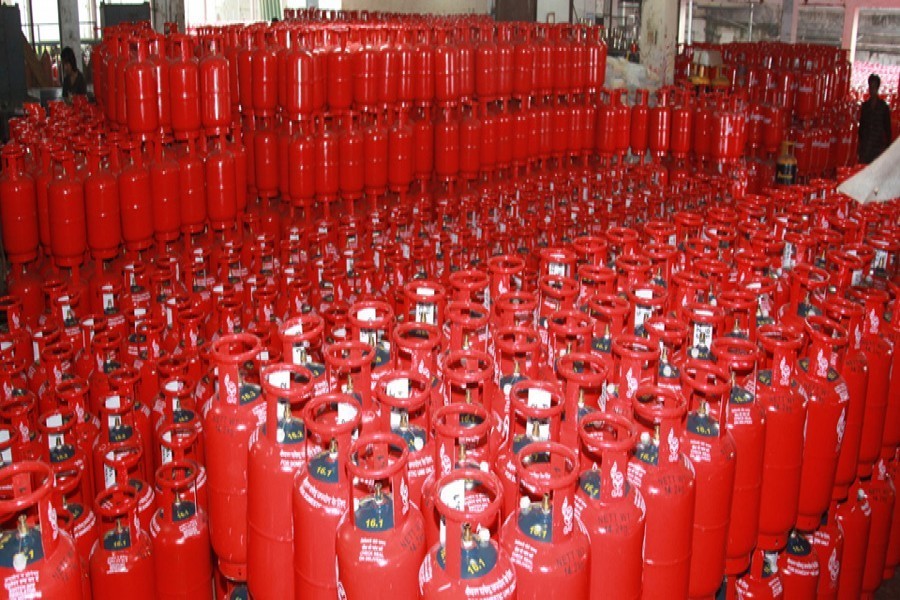It is a fight between the suppliers and the bottlers of liquefied petroleum gas (LPG) over 'compliance' issues. But the consumers, as happens in most cases, are the ultimate sufferers with the government and the regulator concerned deciding to remain onlookers. Lately, as mentioned in a report published in Saturday's issue of the FE, the importers and suppliers have stopped the supply of LPG to 11 bottling plants, mainly located in the Chattogram region, alleging various irregularities on the part of the latter.
Complaints that are being made by the bulk LPG suppliers are very serious in nature. The first one relates to the use of substandard cylinders for bottling LPG and the second one refers to cheating through placing sand and water inside the cylinders. Now that the LPG importers and suppliers have stopped making gas available to the bottlers, the prices of the fuel have gone up at the retail level. The LPG users, reportedly, are counting Tk.200 more for a 12 kilogramme (kg) cylinder. The Chittagong Chamber of Commerce and Industry (CCC&I) has already written to the Prime Minister's Office and relevant other agencies to ensure LPG supply to the bottlers who have made substantial investment and employed hundreds of people.
There is no denying that substandard cylinders are available in the market. A number of people have been killed and injured in incidents of cylinder blast. The relevant government agency is yet to locate the marketers of the said cylinders. However, the issue of unilateral decision on the part of the LPG importers to suspend supply of gas is not beyond question. The LPG bottling plants came up one after another because the LPG importers were supplying gas to the former. The suspension of gas supply alleging the use of substandard cylinders might be justified, but it should have the job either of the department of explosives or the Bangladesh Energy Regulatory Commission (BERC).
The action on the part of the bulk LPG importers and suppliers against the bottlers might have originated from business interests. The bottling plants, in fact, came up when bulk LPG importers were few in number and their business network were confined in a limited area. Bottling plants then used to market cylinders in most parts of the country. Now that the number of bulk importers of LPG having ability to meet the demand for household cylinders has gone up, the bottlers have turned out to be their business rivals.
The harsh truth is that the government, for reasons best known to it, has decided to remain indifferent about LPG marketing. This has again been substantiated by the state minister for power and energy who, when approached by the FE, said the government had nothing to do as both the owners of bottling plants and the LPG suppliers are in the private sector. Should the government be an onlooker if two large segments in the private sector are found engaged in a rivalry that hurts the interest of the consumers? Is it not the responsibility of the government to mediate or help settle disputes between two or multiple groups? Since the issue relates to the energy sector, the BERC should also intervene and help resolve it. More importantly, it should ask the government to put in place a broad-based policy for LPG marketing.


